Socket Testers & Adaptors
A must-have for your electrical toolkit! Just insert one of these testers into a socket and it'll tell you what's wrong with the wiring using audio/visual feedback. We also stock socket adaptors for use with digital multimeters and other testers.
Find out more about Socket Testers & Adaptors below.

- Standard 4mm connectors to suit most types of multifunction testers
- Test R2 and R1+R2 without removing the leads
- Safety compliance with IEC 1010 ( CAT III 300V).

- Special design for quick installation and removal
- Straightforward and quick to use
- Lightweight and portable

- Ultraportable and compact, fits straight into plug sockets
- Uses high definition LEDs and an audible tone to indicate 14 wiring conditions
- Drop proof from one metre

- Test all wall socket plugs and outlets
- Take quick R1 and R2 measurements
- Compatible with any meter that has a 4mm plug
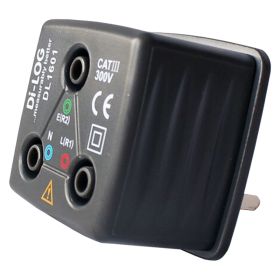
- Socket adaptor
- Test without removing the socket
- Safety compliant
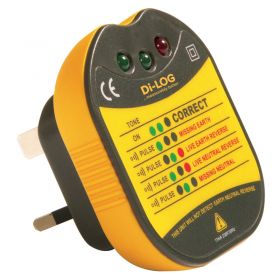
- Simple, effective socket testing
- LED and audible indicators
- Extremely easy to use
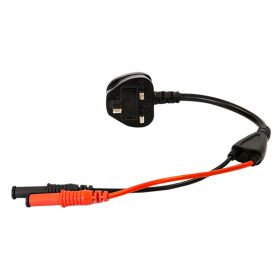
- UK adaptor
- 3-Pin, Type G Plug
- Easy testing near Type G plugs
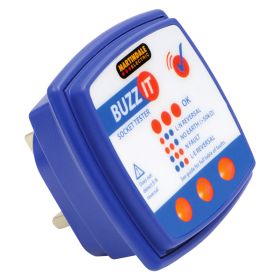
- Fast and easy
- Audible signal
- Three LEDs

- Handy adapter
- Save time and money
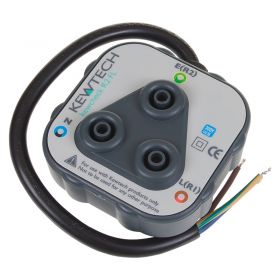
- Comes without plug or connector so that you can connect your own
- Simple wiring allows you to connect to any system you prefer
- Allows for loop and R1/R2 measurements

- Easily perform testing
- Compatible with 4mm test probes

- 4mm earth connection
- Guarantee good earth

- Plug into a socket to determine wiring status
- LED indicators
- British standard 3 pin plug design
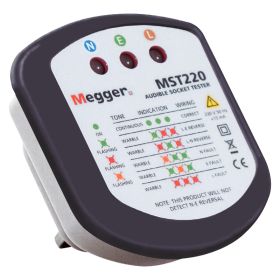
- Simple and effective identification
- Tri-coloured LEDs
- Rugged and reliable
- Easy to use

- Quick, clear, easy testing of mains wiring
- Features patented ‘Fault Locate’ electronics
- Optimised for detecting dangerous wiring conditions such as reversed earth connections and disconnected wires

- LED and audible indicators
- Detects 13 wiring fault conditions
- Suitable for use even on noisy circuits
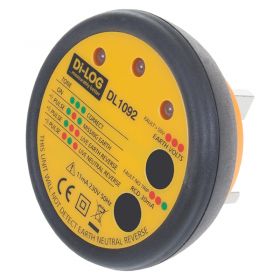
- Simple way to test correct wiring configuration in sockets
- Features LED indicators with text explanations
- Buzzer sounds if incorrect configurations are detected
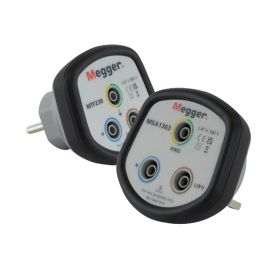
- Facilitates R1 and R2 testing of standard UK socket outlets
- Colour-coded line, neutral, and earth connections
- Safety rated: CAT II 300V
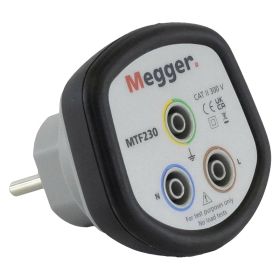
- Compatible with the MFT X1 series
- Colour-coded terminals and standard 4 mm terminals
- Maximum current of 300 V


- Bright LEDs indicated correct installation and several common wiring errors
- The beeper indicates voltage detection as well as hazardous voltage
- RCD test button for checking the condition of RCD outlets

- Socket Interface Adaptor
- Compatible with Megger's LTW Earth Loop Testers (ONLY)

- Capable of detecting twenty-eight fault conditions
- An advanced socket tester as defined by the Health & Safety Executive
- Verifies earth wiring using a non-trip earth loop test

- Ensures maximum safety by checking quality of earth loop return path
- Offers more functions than regular socket testers
- Automatically runs wiring checks upon insertion into mains

- Simple to use; just plug it into any socket
- Fitted with a standard blue pin plug
- LED lights show you if there is a problem
About Socket Testers & Adaptors
Socket testers are an essential part of any electrician's toolkit, and allow users to quickly and easily evaluate the internal wiring of a socket without the need to remove the socket faceplate and potentially cause damage to the installation.
Generally extremely cost effective and cheap, socket testers are also incredibly simple to use, and require the user to simply insert the tester into a socket and the tester will do the rest. Depending upon the type of socket tester used the way information is communicated will be different; some socket testers use LED indicators to show wiring status, while others use the audible indication to show correct wiring/problems with the installation. Some also use a combination of audible and visual indicators, allowing users to quickly tell if there's a problem with a socket or not.
The visual indicators of socket testers are perhaps the handiest part of the tester. These often come with exact representations of what's wrong with the wiring, so if live earth was reversed, for example, the tester would illuminate with a combination that denotes this problem. Most socket testers also include a handy reference guide on the front so users can determine what exactly the different LED indicators mean.
This section also contains socket adaptors; these differ from socket testers as they are designed generally to be inserted into a socket and the user then uses another tester such as a multimeter and a set of test leads to carry out socket testing. They can also include socket testers attached to specific plugs, such as those plugs used in industrial applications.
Most socket testers and adaptors available in-store come with standard UK three-pin plug connectors (except if they are designed for specific sockets such as the aforementioned industrial sockets).


